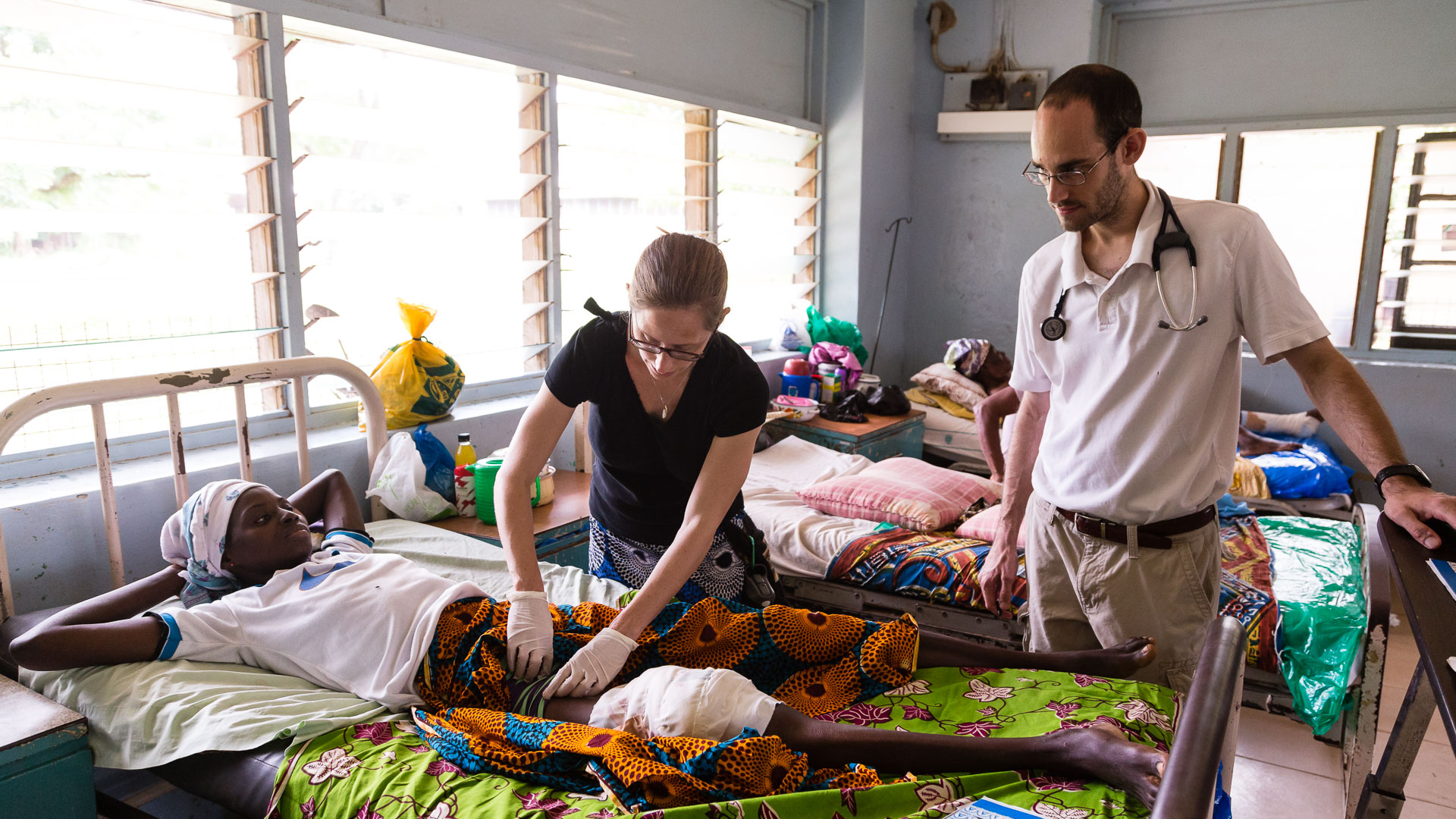
My first month practicing medicine in West Africa was rough. I had medical school training and technical knowledge, but I didn’t have any experience dealing with patients from another culture so different from my own.
One day a young boy was admitted with a snake bite. Upon examination, we realized the wound had been festering for weeks and his infected foot was now gangrenous. He needed an amputation to save his life. But his family vehemently refused and took him home. I knew their decision was a death sentence. I didn’t understand how parents could do this to their child. Why had they waited weeks to bring him in? Why were they now refusing life-saving treatment?
Traditional Healing in West African Culture
Thankfully, the experienced IMB doctors I was shadowing took time to explain the cultural practices and beliefs at play in this patient’s case. Before bringing their son to a Western doctor, the family had sought out local healers to cure the boy’s snake bite wound. They had probably tried several healers when previous ones had failed, hence the long delay before their arrival at the hospital. Because the boy was from a royal family, he was eligible to become chief one day. Chieftaincy traditions in the region require that a chief not be missing any limb. His family didn’t want him to lose the opportunity to be a tribal leader by allowing doctors to amputate. So, they left hoping they could find some other healer who could cure their son.
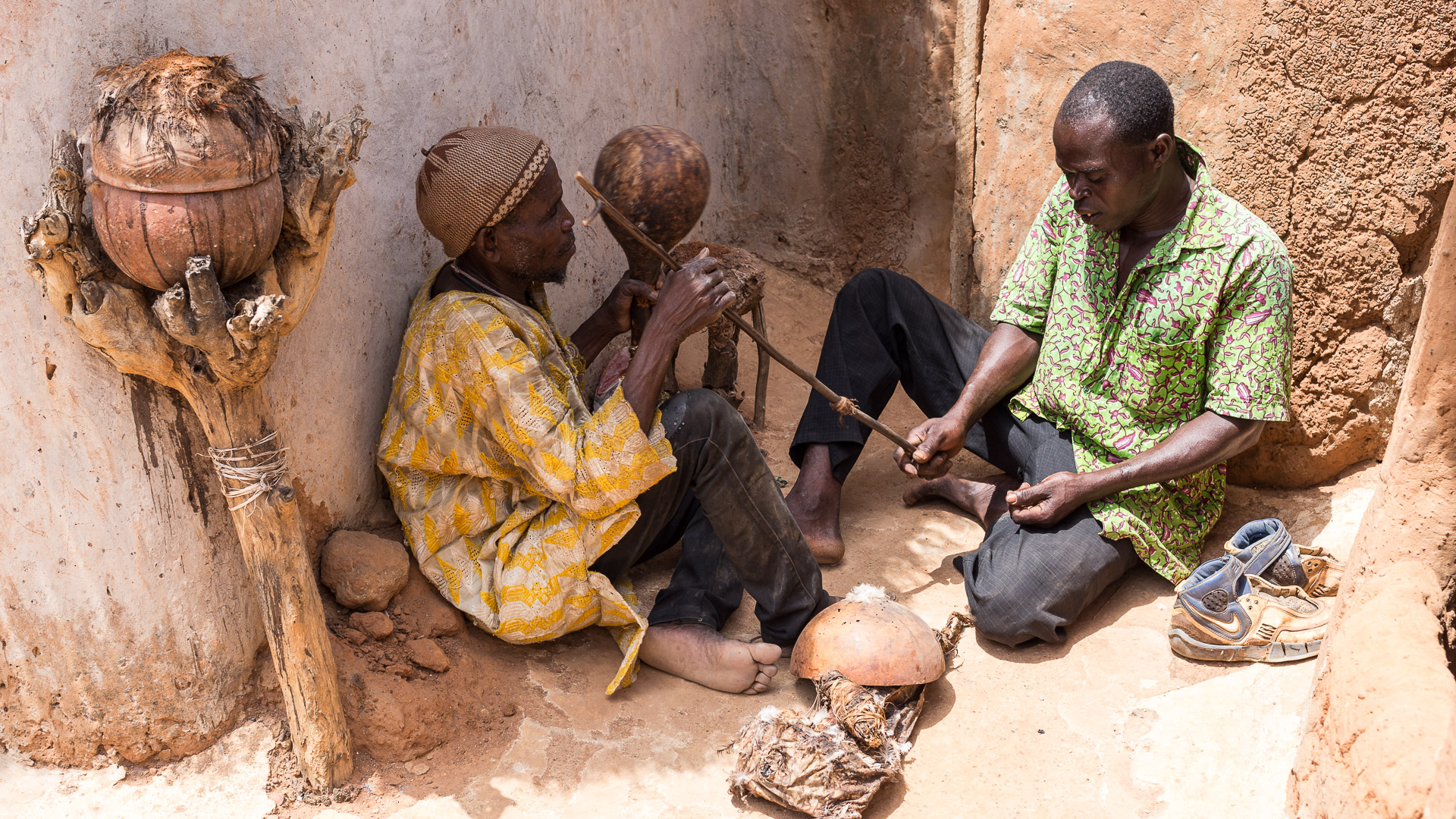
A man consults with a soothsayer to get answers to a problem from ancestral spirits. The soothsayer will give instructions on what ingredients to gather for the cure and what sacrifice the ancestors require to make it effective. All photos by William Haun.
When Magic Is a Synonym for Medicine
Ten years later, I’m now the general surgeon of the Baptist Medical Centre in Nalerigu, Ghana. Over the past decade, I’ve come to better understand how to provide health care in this culture that is so different from my own.
In the Mampruli language, which is spoken where I work, the word for medicine is tiim. Not coincidentally, the word also means “magic.” In this culture, anything with healing or supernatural powers is considered to be or have tiim. When westerners first showed up and offered suffering patients small white pills that relieved pain, they were called “magic.” The only word for pharmacist in the local language—tiimdaana—means the “magic guy” when translated literally. Every time I prescribe medication to patients in the local language, I have to tell them to go buy some “magic” (tiim) from the “magic guy” (tiimdaana).

Left: A traditional healer in Nakpanduri, Ghana, who claimed to have a cure for HIV. Right: These lumps called musiri are made of roots and herbs, which if boiled and drunk or applied topically are believed to cure a host of common illnesses.
West African healers often tout the fact that their cures are “all-natural.” It’s true that they know of many roots, barks, and leaves with legitimate curative properties. But in practice, mixing those ingredients into medicine is usually accompanied by a sacrifice to ancestral spirits. If the cure fails to work, it’s not seen as the fault of the local healer or the medicine but a failure of the patient or family caretaker to appease the spirits.
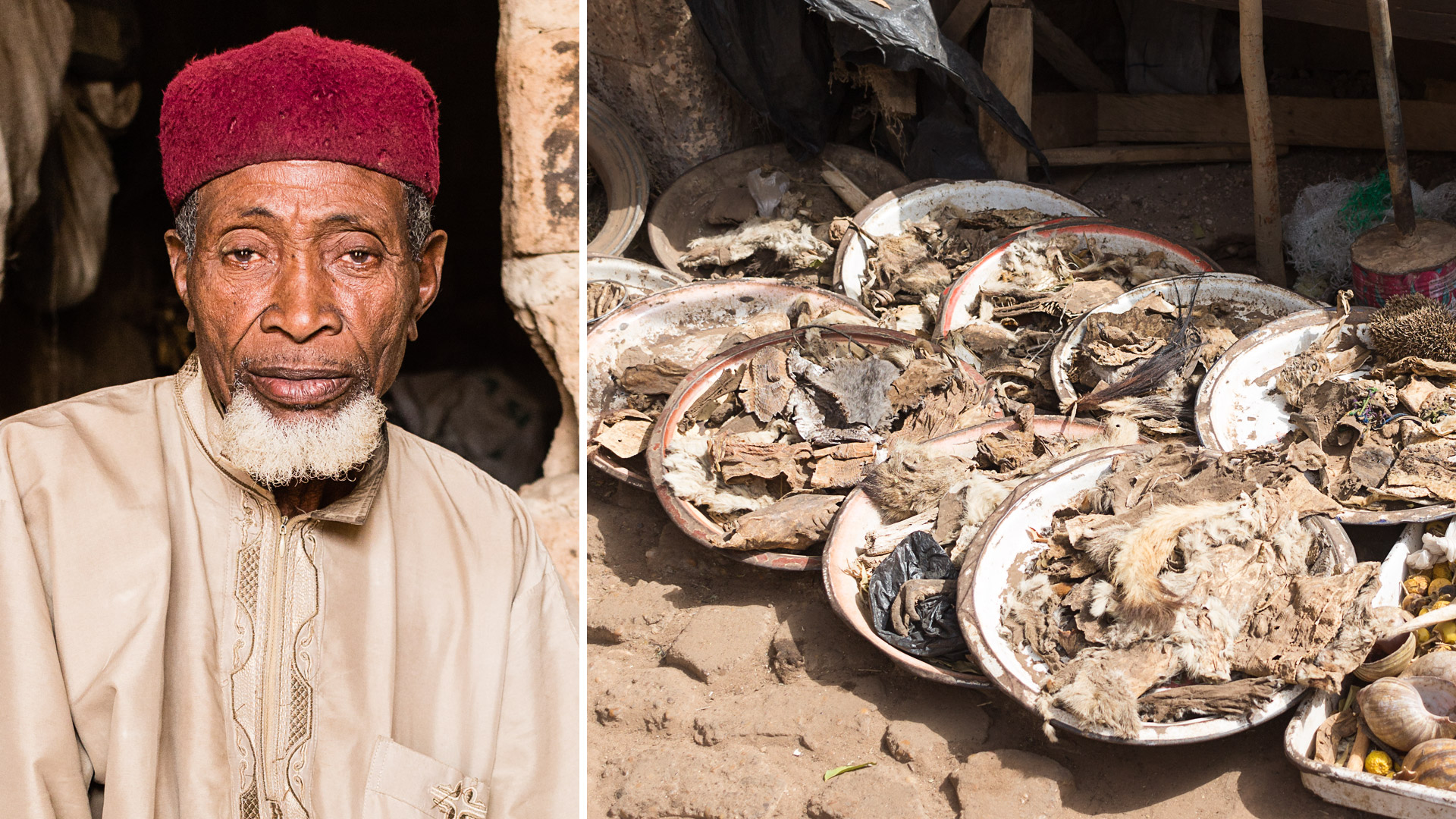
In a market in Niamey, Niger, a traditional healer sells natural ingredients used in medicine and spells. Rarer items like hedgehog skins, porcupine quills, monitor lizard tails, and ostrich feet fetch high prices and are believed to hold great power.
Superstitious Beliefs Have the Power to Destroy Lives
Once I cared for a baby who had been given a local herbal medicine because she had a skin infection. The amount given to the three-week-old child, who should have only been receiving milk, caused a bowel obstruction that almost killed her. I had to perform an emergency operation to relieve the obstruction and save her life.
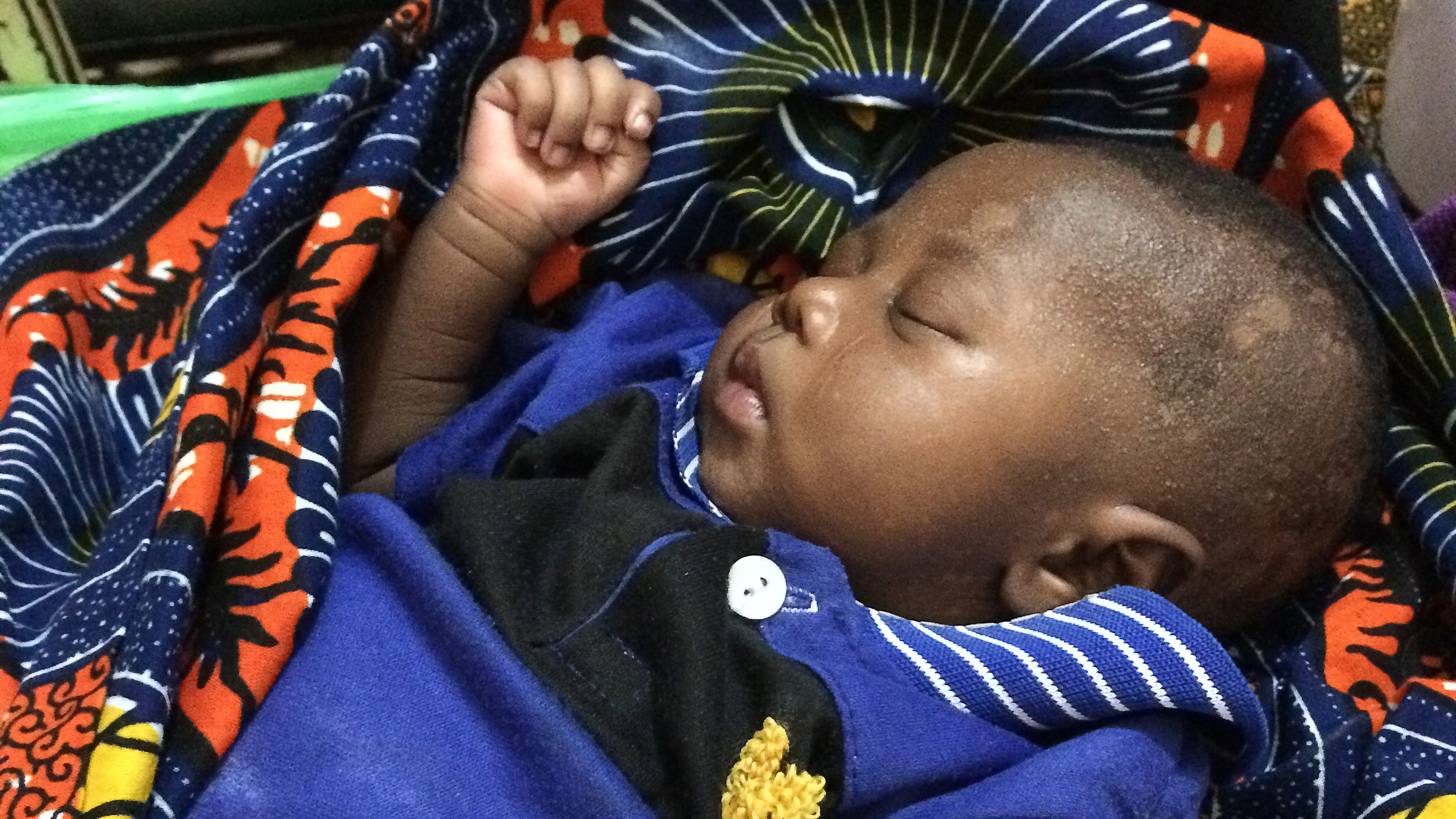
A three-week-old baby recovers after surgery to correct a complication caused by a traditional cure that almost took her life.
Local medicine claiming to cure all sorts of maladies is very popular and has been commercialized across West Africa. The contents of these elixirs are kept secret by their producers and the ingredients can cause serious harm to some individuals.
In my Western medical training, we were encouraged to be thorough and clear in communicating the causes of an illness to our patients. The majority of my patients are functionally illiterate and have had very little education beyond primary school. Instead, they’ve been exposed to folk tales and superstitions that misinform their understanding about the causes of illness.
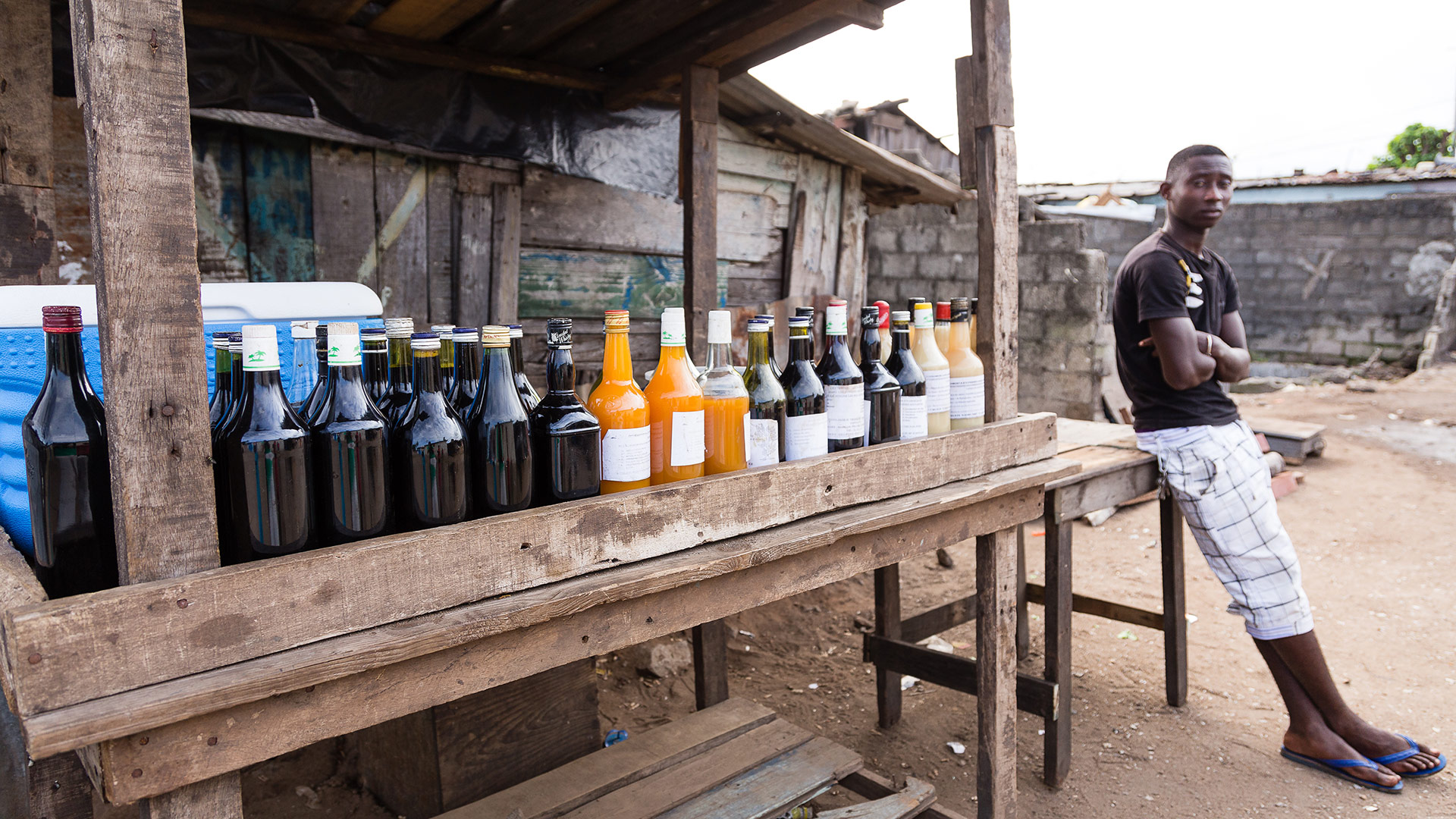
A young man in Abidjan, Ivory Coast, sells a natural medicinal brew that he claims cures stomach pain, arthritis, female infertility, male impotency, malaria, hypertension, urinary tract infections, and more!
The idea of witches and wicked widows may sound silly to secularized westerners, but they terrify many in West Africa. When someone falls ill, the sickness may be attributed to an elderly woman accused of being a witch. Accused women undergo a witch trial, and if found guilty, they are cast out of the community and exiled. A village near us has an entire refugee camp of accused witches whose lives were destroyed by superstition.
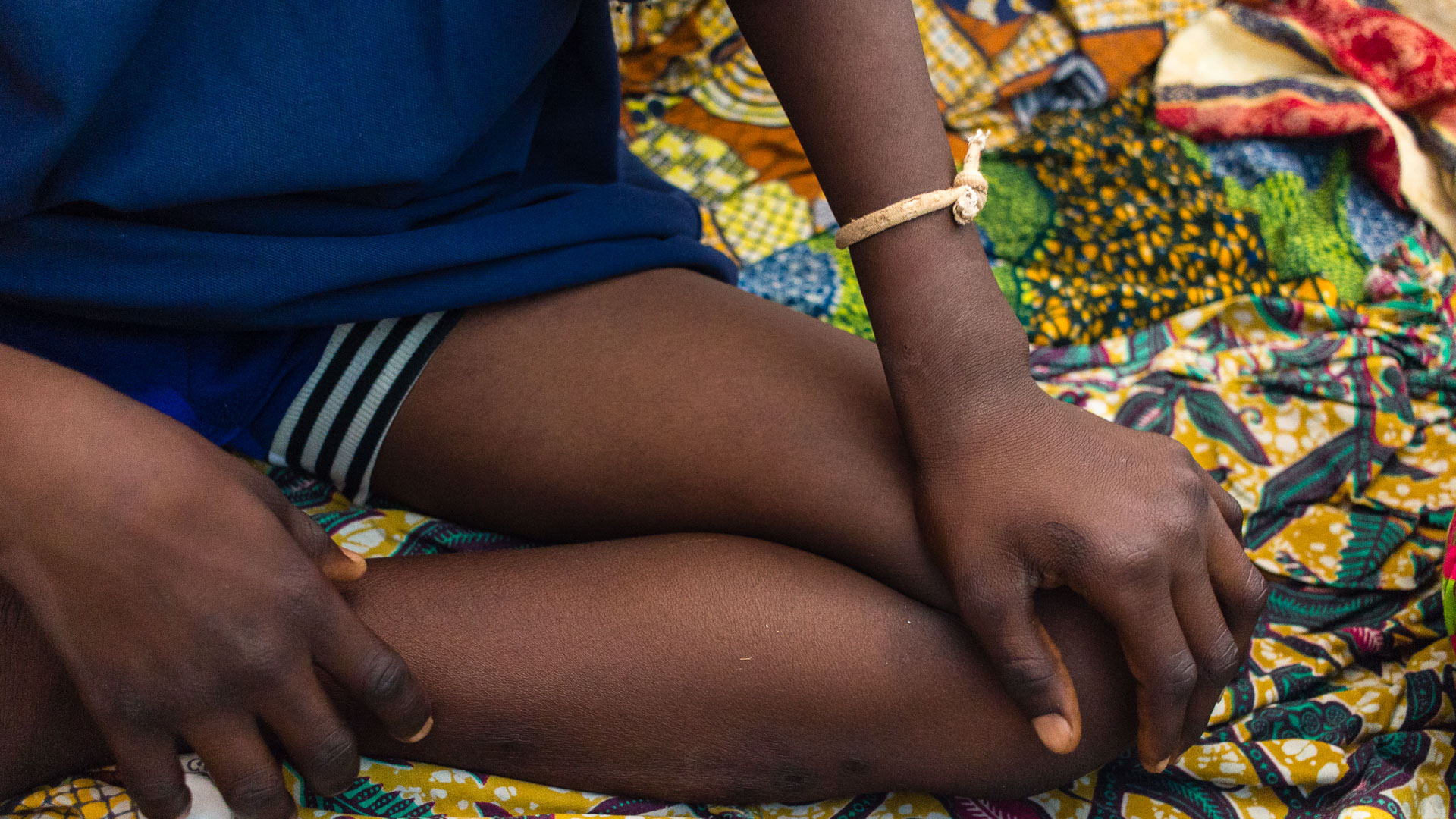
What looks like an innocent bracelet on this sick child’s arm is actually meant to protect the child from harm. There is a superstitious belief that if an adulterous widow—gaba—looks at someone when he is sick, then he will die of his illness. To prevent this, this child wears a piece of cloth that once belonged to a gaba.
Tips for Christian Doctors Working in Traditional Healing Cultures
For Christian doctors working in cultures committed to traditional healing practices, it can be overwhelming trying to practice medicine while addressing the issues that arise from patients’ worldview. As my understanding of local healing culture has grown, many aspects of how I practice medicine have changed. I’ve learned how to care for patients who lack knowledge about science, face pressure from family and community to rely on traditional practices, and who fear spirits and bad magic.
Here are a few things I’ve learned with regards to interacting with patients committed to traditional healing.
- Learn the language
The first and most important step is simply knowing that these hurdles exist. By learning the local culture and language, I’ve been able to more effectively communicate the true causes of illness and explain necessary medical treatments and how and why they differ from traditional approaches. - Empower families
Knowing the importance of family and community in this culture affects how I treat patients. I bring the family into the conversation and empower them to take part in the care of the patient. - Pray with patients
In moments when I pray with my patients, their eyes are opened to a whole new concept—that it’s possible to communicate directly with the Most High God. I’m able to bring needs before him because the necessary sacrifice has already been made by Christ on the cross. - Testify to freedom from fear
Although I’m not able to change someone’s deeply ingrained worldview overnight, I can address my patients’ fear of evil spirits and superstitions. I believe that Jesus Christ has authority over all creation. In Christ, we don’t have to fear Satan and his evil ones. I share specific gospel stories that recount the authority of Christ over demons and freedom from fear that he offers to those who put their faith in him for salvation.
Dr. Heidi Haun and her husband, William, live in northern Ghana in the heart of the ancient Mamprusi kingdom with their two children. Dr. Haun is called “Dɔ’ata Ilaarini,” or “Doctor, You’re Smiling,” by her friends and patients, and William is known locally as the “Sulimiinsina’akyinnaaba,” or “young white men’s chief.”

